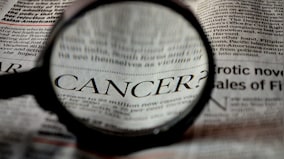World No Tobacco Day, commemorated on 31 May annually, serves as a poignant reminder of the detrimental effects of tobacco use and the imperative to enact measures aimed at curbing its consumption. Tobacco consumption stands as a paramount contributor to preventable illnesses and fatalities worldwide casting a long shadow of adverse health consequences ranging from cancer to fertility complications.
Danger of cancer
Tobacco usage represents the foremost preventable cause of cancer globally, accounting for approximately 22 per cent of cancer-related deaths. Among its myriad devastating impacts, tobacco smoke significantly heightens the risk of lung cancer, serving as the primary culprit in approximately 85 per cent of cases. Moreover, tobacco consumption, whether through smoking or smokeless means like chewing tobacco, is a prominent risk factor for cancers affecting the oral cavity, throat, esophagus, bladder, pancreas, kidney, cervix, stomach, and acute myeloid leukemia.
“Smoking is injurious to health and can adversely affect overall health and well-being. When cigarette smoke is inhaled, it can cause severe damage to the lungs, kidneys, voice box(larynx) and mouth. Heavy smokers have a higher chance of developing cancer of the mouth, throat and lungs as these parts of the body are directly exposed to the harmful toxins in cigarette smoke. A cigarette is made of cancer-causing substances such as tar, nicotine, arsenic and benzene which eventually decrease life expectancy and increase the chances of cancer. These harmful chemicals when exposed to the lungs can damage DNA lead to genetic mutation, and also cause inflammation and damage cells gradually,” said Dr Atul Narayankar, Consultant Medical Oncologist, Wockhardt Hospitals, Mira Road in Mumbai.
“Tobacco use is the leading preventable cause of cancer and cancer deaths. Almost 40 per cent of cancers in India are caused by tobacco exposure. It can cause not only lung cancer — but also cancers of the mouth and throat, voice box, esophagus, stomach, kidney, pancreas, liver, bladder, cervix, colon and rectum and a type of leukemia,” said Narayankar.
The symptoms include hoarseness or a cough that does not go away, a hard time swallowing, discomfort after eating, changes in bowel or bladder habits, unusual bleeding or discharge, a thickening or lump in any part of the body, weight loss with no known reason and a sore that does not heal'
“The goal of oral cancer screening is to detect mouth cancer or precancerous lesions that may lead to mouth cancer at an early stage — when cancer or lesions are easiest to remove and most likely to be cured. People with a high risk of oral cancer may be more likely to benefit from oral cancer screening
“Smoking causes cancer in multiple ways. The main way is by damaging the DNA in our cells. DNA controls how our cells grow and behave. Damage to DNA causes cells to behave in ways that they’re not supposed to. And the build-up of DNA damage over time can lead to cancer.
Secondhand smoke is what you inhale accidentally (called passive smoking) when you are near sources of tobacco smoke. For example, at parties or public gatherings, you might mingle with people who smoke. You may not feel any changes, but breathing secondhand smoke can affect your health,” said Narayankar. “Quitting smoking is the best thing you can do if you smoke and saying no to smoking is another wise thing to do if you have not yet indulged in this bad habit.”
Possibility of infertility?
In addition to its profound association with cancer, tobacco usage exerts a deleterious toll on fertility, afflicting both women and men. In women, smoking disrupts hormone production, precipitating irregular menstrual cycles and heightened susceptibility to anovulation. Furthermore, the toxins in tobacco smoke compromise the quality of eggs, elevating the risk of chromosomal aberrations and impairing fertility.
Structural damage inflicted upon the fallopian tubes amplifies the likelihood of ectopic pregnancies, exacerbating reproductive challenges. Conversely, in men, tobacco consumption impairs sperm count, motility, and morphology, compromising fertility potential. The onslaught of DNA damage in sperm cells instigated by tobacco smoke engenders genetic anomalies in offspring and augments the risk of miscarriages. Additionally, smoking-induced vascular impairment can culminate in erectile dysfunction, further complicating matters of fertility.
“Male fertility occurs when one is unable to produce enough sperm which is necessary for conceiving. It can be caused by various reasons such as your body being unable to generate enough sperm or healthy sperm, the reproductive system tube getting blocked, problems in hormonal or pituitary glands, a weak immune system, certain diseases or medical conditions, and genetics. There are several male infertility conditions like Azoospermia(zero or no sperms in the ejaculate), Oligospermia(low sperm count) Asthenospermia(poor sperm motility) and Varicocele(an enlargement of the veins within the loose bag of skin that holds the testicles) among the others,” said Dr Soumya Shetty, Fertility Consultant, Nova IVF, at Chembur in Mumbai.
“Fertility specialists provide a personalised form of treatment as per the condition, few male infertility conditions can be treated through medications or surgery, while some require the help of fertility treatments like IVF, IUI etc. Few studies show that few men with male infertility issues may be more prone to other health conditions like cardiovascular diseases, cancer etc, however there is not enough data to support this. Infertility can cause hormonal imbalances in the body, and lead to lower testosterone levels and disturbance in the functioning of the endocrine. Lifestyle factors such as irregular sleeping patterns, eating junk and processed food, excessive consumption of alcohol, smoking, chewing tobacco, or being overweight are the factors which can significantly increase the risk of male infertility. Certain autoimmune diseases could be the potential reason that could cause male infertility,” said Shetty .
Purpose of World No Tobacco Day
The observance of World No Tobacco Day highlights the multifaceted repercussions of tobacco use spanning from cancer to the intricate dynamics of fertility. By fostering awareness and advocating for tobacco cessation initiatives, this global campaign endeavors to mitigate the pervasive health hazards engendered by tobacco consumption. The cessation of smoking and the mitigation of secondhand smoke exposure emerge as indispensable imperatives in safeguarding against the profound health afflictions wrought by tobacco.











)
)
)
)